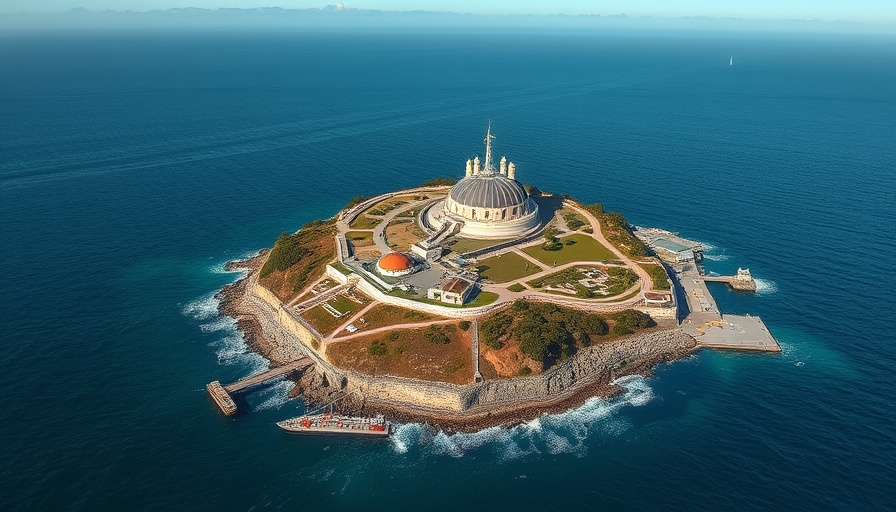
The Controversial Alligator Alcatraz: A Temporary Solution or a Permanent Problem?
In a significant court ruling, U.S. District Judge Kathleen Williams has halted the expansion of Florida's notorious "Alligator Alcatraz" immigration detention facility. This abrupt halt stems from a determination that the expansion violates critical environmental laws, prompting the judge to order the dismantling of infrastructure related to the facility within 60 days. With state officials and federal authorities entangled in a legal battle, this decision underscores the tension between immigration policy and environmental preservation.
Environmental Implications of Immigration Detention Centers
The Alligator Alcatraz facility, situated in the wild expanse of the Everglades, has drawn sharp criticism from environmentalists and Indigenous groups. Lawsuits from the Miccosukee Tribe and various environmental organizations highlighted the potential devastation posed by the facility to delicate wetlands and endangered species like the Florida panther and wood stork. Critics have voiced concerns about how immigration policies can encroach upon vital ecosystems, illustrating a paradox where human rights meet environmental justice.
What Set Off the Legal Battle?
Following the rapid construction of the facility on an airfield within the Big Cypress National Preserve, the conditions at the site have also come under fire. Detainees have reported overcrowded tents, inadequate medical care, and poor sanitary conditions. Following a recent visit from President Trump, who lauded the site, Florida Governor Ron DeSantis had proposed the idea of expanding similar facilities, further complicating the situation. This legal push-back indicates a growing resistance against facilities that prioritize enforcement over the welfare of vulnerable populations and the environment.
State versus Federal Control: The Legal Tug-of-War
In the wake of the judge's ruling, Florida state officials contended that they hold exclusive control over the project, a claim that Judge Williams refuted. Her ruling emphasizes that the facility’s creation entailed cooperation between state and federal agencies, raising questions about accountability and governance in immigration policy implementation. This division of responsibility is critical as it extends far beyond Florida, affecting how states manage immigration facilities nationally.
A Broader Perspective: The Impact of Similar Facilities
The massive debate around the Alligator Alcatraz resonates beyond Florida's borders. Across the United States, immigration detention centers face scrutiny for their treatment of detainees and environmental impact. Facilities similar in nature have been criticized for inadequate care and the broader implications of detaining vulnerable populations. Understanding the intricacies of these issues encourages stakeholders to seek solutions that prioritize humane treatment alongside environmental stewardship.
Looking Ahead: The Future of Immigration Detention Facilities
As the legal proceedings unfold, the future of the Alligator Alcatraz remains uncertain. Environmentalists and legal experts view this ruling as a potential turning point. It may push for reforms in how immigration detention is approached in the U.S., particularly regarding the environmental implications of new facilities. The combination of legal, environmental, and humanitarian concerns suggests a broader reevaluation of immigration policy might be necessary.
Call to Action: Advocating for Environmental Justice and Human Rights
As the situation develops, there is a pressing need for communities to engage in discussions about the intersection of immigration law and environmental protection. Supporting organizations that advocate for these causes could lead to meaningful change. By staying informed, individuals can contribute to a dialogue that respects both human dignity and environmental integrity.
 Add Row
Add Row 
 Add
Add 


Write A Comment